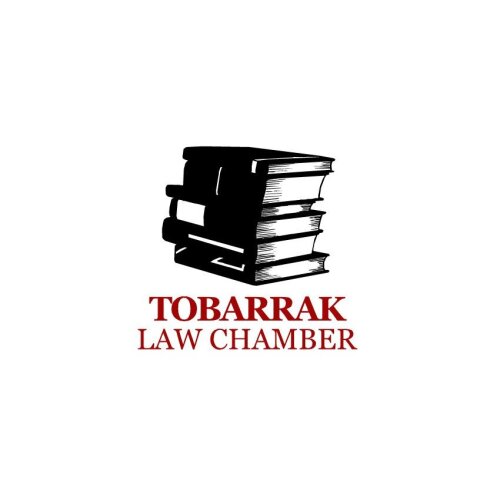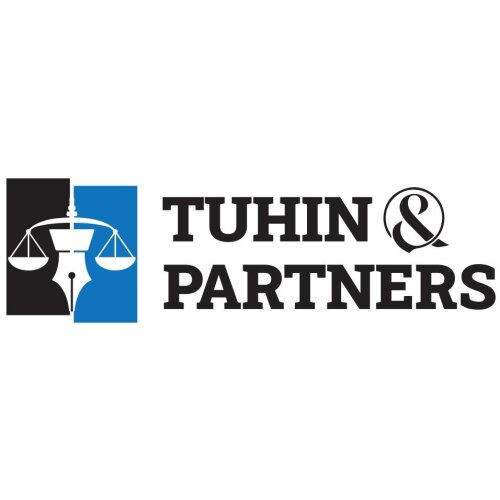Best Media, Technology and Telecoms Lawyers in Dhaka
Share your needs with us, get contacted by law firms.
Free. Takes 2 min.
List of the best lawyers in Dhaka, Bangladesh
About Media, Technology and Telecoms Law in Dhaka, Bangladesh
The domain of Media, Technology, and Telecoms in Dhaka, Bangladesh is a rapidly growing industry that plays a crucial role in the country's economy. The sector is governed by several statutes and regulations set by governmental and regulatory bodies. These laws encompass a wide range of issues, such as digital content rights, privacy protection, e-commerce, IP rights, data protection, and communications law in the telecom sector. Navigating through these laws and regulations can be complex, hence the need for specialized legal advice.
Why You May Need a Lawyer
Legal assistance may be required in a myriad of situations in the Media, Technology, and Telecoms sector. These situations can range from needing advice on establishing a tech start-up, negotiating contracts, dealing with copyright and intellectual property issues, data breaches, and privacy concerns. Businesses may need to ensure compliance with local regulations related to content publication, digital advertising, and customer data handling. To mitigate the risk of legal disputes and to ensure the compliant operation of businesses, legal advice is a crucial element.
Local Laws Overview
Key legal aspects governing Media, Technology, and Telecoms in Bangladesh include the Information and Communication Technology Act, the Bangladeshi Copyright Act, and the Bangladesh Telecommunication Regulatory Act. The ICT Act addresses crimes relating to the misuse of digital technology and cyber terrorism. The Copyright Act safeguards original works of authors, artists, and creators. The Telecommunication Regulatory Act focuses on maintaining a consistent and fair telecom market. Knowledge of these laws is imperative to navigate the Media, Technology, Telecoms sector in Bangladesh.
Frequently Asked Questions
1. What is the ICT Act and how is it relevant?
The ICT Act is a legal directive that deals with online crime and security. It covers issues like hacking, data damage or theft, digital terrorism, and more. This law is paramount for any individual or company dealing with digital content or technology in Bangladesh.
2. How does the Copyright Act affect creators and publishers?
The Copyright Act in Bangladesh protects the original works of authors, artists including individuals and companies. Violations of this law, such as unauthorised use or replication of protected works, can lead to legal conflicts.
3. How does the Telecommunication Regulatory Act impact telecom businesses?
The Telecommunication Regulatory Act governs how businesses in the telecom sector operate, ensuring a consistent and fair market. Business owners must understand their obligations under this law to avoid potential litigation or penalties.
4. When should a tech startup consult a lawyer?
Startup companies in technology should consider consulting a lawyer as early as possible. A lawyer can provide valuable advice in areas such as compliance with local laws, license registrations, legal structure, protecting intellectual property, and more.
5. What legal issues could arise from data breaches?
Data breaches can lead to severe legal implications under the ICT Act, such as penalties for non-compliance, as well as potential civil liability for breach of privacy or confidentiality obligations.
6. What rights do consumers have regarding data privacy?
Consumers in Bangladesh have a right to their data privacy as mandated by both the ICT Act and the Right to Information Act. Businesses are obligated under these laws to protect the privacy of their customers.
7. How are disputes over digital content typically resolved?
Disputes over digital content are often resolved through legal action, with remedies ranging from take-down notices to damages or penalties. Each case is unique, and requires specialized legal advice.
8. Can a lawyer help with drafting technology contracts?
Yes, lawyers specializing in tech law can assist with drafting contracts that comply with local laws and protect the interests of all parties involved.
9. What can I do if my intellectual property has been infringed upon?
If your intellectual property rights have been violated, the Copyright Act protects your rights and gives you a legal ground to pursue a lawsuit for infringement.
10. Can a lawyer assist with e-commerce concerns?
Absolutely, lawyers can provide assistance with a range of e-commerce concerns including data privacy, transactional issues, and more.
Additional Resources
The Bangladesh Telecommunication Regulatory Commission (BTRC) and the Department of Information and Communications Technology (ICT Division) are government bodies that provide valuable resources related to the Telecom and Technology sectors respectively. The Copyright Office of Bangladesh is also a valuable resource for Media laws.
Next Steps
If you require legal aid in the Media, Technology, and Telecoms sector, your primary step should be to find a lawyer or legal firm that specializes in this field. They can help you understand the complexities of local laws and regulations, assist in dispute resolutions, and guide you on how to stay compliant with the current legal landscape of Bangladesh.
Lawzana helps you find the best lawyers and law firms in Dhaka through a curated and pre-screened list of qualified legal professionals. Our platform offers rankings and detailed profiles of attorneys and law firms, allowing you to compare based on practice areas, including Media, Technology and Telecoms, experience, and client feedback.
Each profile includes a description of the firm's areas of practice, client reviews, team members and partners, year of establishment, spoken languages, office locations, contact information, social media presence, and any published articles or resources. Most firms on our platform speak English and are experienced in both local and international legal matters.
Get a quote from top-rated law firms in Dhaka, Bangladesh — quickly, securely, and without unnecessary hassle.
Disclaimer:
The information provided on this page is for general informational purposes only and does not constitute legal advice. While we strive to ensure the accuracy and relevance of the content, legal information may change over time, and interpretations of the law can vary. You should always consult with a qualified legal professional for advice specific to your situation.
We disclaim all liability for actions taken or not taken based on the content of this page. If you believe any information is incorrect or outdated, please contact us, and we will review and update it where appropriate.
Browse media, technology and telecoms law firms by service in Dhaka, Bangladesh
Dhaka, Bangladesh Attorneys in related practice areas.











